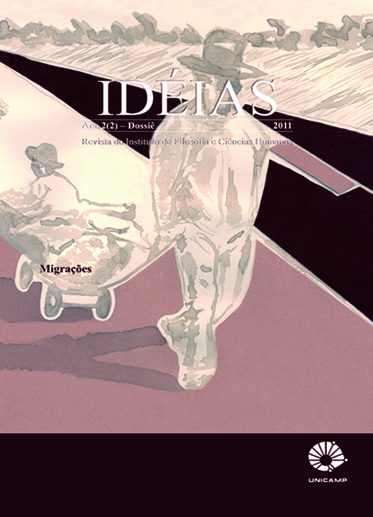Resumen
Justiça e desigualdades em saúde. Nós aprendemos ao longo dos últimos 150 anos que as chances individuais de vida e morte estão dadas de acordo com a classe social: quanto melhor o nível econômico e educacional de uma pessoa, mais longa e mais saudável será sua vida.Citas
Marmot M. Social Causes of Social Inequalities in Health. Harvard Center for Population and Development Studies, Working Paper Series 1999;01.
Dahlgren G, Whitehead M. Policies and Strategies to Promote Social Equity in Health. Stockholm: Institute of Future Studies; 1991.
Benzeval M, Judge K, Whitehead M, (eds.). Tackling Inequalities in Health: An Agenda for Action. London: King’s Fund; 1995.
Marchand S, Wikler D, Landesman B. Class, Health, and Justice. Milbank Quarterly 1996; 76:449-468
Rawls J. Theory of Justice. Cambridge(MA): Belknap Press of Harvard University Press;1971. (sect 12-13)
Marmot M. Social Differentials in Health Within and Between Populations. Daedalus 1994; 123(4):197-216.
Whitehead M. The Concepts and Principles of Equity and Health. International Journal of Health Services 1992; 22:429-445.
Braveman P. Monitoring Equity in Health: A Policy-oriented Approach in Low-and Middle-income Countries. Geneva: World Health Organization; 1999.
Wikler D. Persuasion and Coercion for Health: Issues in Government Efforts to Change Life Style. Milbank Quarterly 1978; 56:303- 338.
Roemer JE. Equality of Opportunity. Cambridge (MA):Harvard University Press; 1998.
Anderson E. What is the Point of Equality? Ethics 1999; 109(2):287-337.
Cohen J. Democratic Equality. Ethics 1989; 99:727-754.
Daniels N. Just Health Care. New York: Cambridge University Press; 1985.
Rawls J. Political Liberalism. New York: Columbia University Press; 1993.
Cohen GA. The Pareto Argument for Inequality. Social Philosophy and Policy 1995;12: 160-185. 16. Gutmann A, Thompson D. Democratic Disagreement. Cambridge: Harvard University Press; 1995.
Daniels N, Light DW, Caplan RL. Benchmarks of Fairness for Health Care Reform. New York: Oxford University Press; 1996.
Daniels N. Mental Disabilities, Equal Opportunity, and the ADA. In: Bonnie R, Monahan J, (eds.). Mental Disorder, Work Disability and the Law. Chicago: University of Chicago Press; 1996. p. 282-297.
Arrow K. Uncertainty and the Welfare Economics of Medical Care. American Economic Review 1963; 53:941-973.
Sen AK. Equality of What? In: McMurrin SM, (ed.). Tanner Lectures on Human Values, vol.1. Cambridge: Cambridge University Press; 1980.
Sen AK. Inequality Reexamined. Cambridge(MA): Harvard University Press; 1992.
Daniels N. Equality of What: Welfare, Resources, or Capabilities? Philosophy and Phenomenological Research 1990; 50:273-296.
Fishkin J. Justice, Equal Opportunity, and the Family. New Haven(CT): Yale University Press; 1983.
Daniels N, Sabin JE. Limits to Health Care: Fair Procedures, Democratic Deliberation, and the Legitimacy Problem for Insurers. Philosophy and Public Affairs 1997; 26:303-350.
Arneson RJ. Equality and Equal Opportunity for Welfare. Philosophical Studies 1988; 54:79-95.
Cohen GA. On The Currency of Egalitarian Justice. Ethics 1989; 99:906-944.
Nussbaum MC. Women and Human Development. Cambridge: Cambridge University Press; 2000.
Buchanan A, Daniels N, Wikler D, Brock DW. From Chance to Choice: Genetics and Justice. New York: Cambridge University Press; 2000.
A Idéias utiliza a licença do Creative Commons (CC), preservando assim, a integridade dos artigos em ambiente de acesso aberto.

